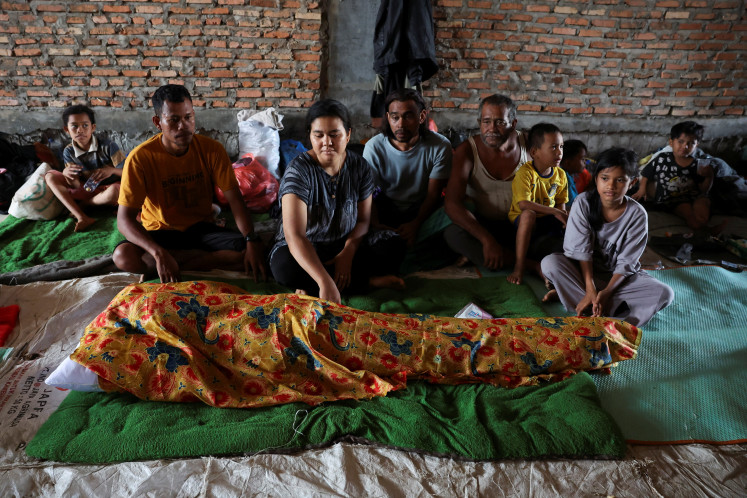Popular Reads
Top Results
Can't find what you're looking for?
View all search resultsPopular Reads
Top Results
Can't find what you're looking for?
View all search resultsLemhannas favors soft approach in solving conflict
A regional government agency on welfare and isolated communities in Papua gathered some 200 teenage students in Jayapura on Friday with the hope of teaching them the meaning of nationalism and heroism
Change text size
Gift Premium Articles
to Anyone
A
regional government agency on welfare and isolated communities in Papua gathered some 200 teenage students in Jayapura on Friday with the hope of teaching them the meaning of nationalism and heroism.
The event, which many would consider indoctrination, was in stark contrast to what happened earlier on Tuesday when thousands of Papuans in numerous cities and villages marched in support of a referendum.
“In several areas, the younger generation is unfamiliar with our national heroes, and the flag-raising ceremony, the national anthem and various other things,” said agency head Johanis Safkaur as quoted by state news agency Antara.
Separately in the capital city Jakarta on Friday, President Susilo Bambang Yudhoyono held a meeting with Budi Susilo Soepandji, the newly appointed governor of the National Resilience Institute (Lemhannas), a government-funded education center well-known for producing top government and military leaders.
According to Budi, the meeting discussed, among other things, the surge of conflict in Papua and how to address it. Budi said he had advised the President on the futility of repressive measures in present-day Papua.
“Repressive measures are futile. We have to put forward law enforcement, a legal approach, a social approach and a civil society approach,” Budi said.
The government should focus on programs that empower the weak through the involvement of all levels of society, he added.
There are two things that policy makers should take into account when assessing Papua, he said. The first is the need to maintain stability among communities in a population that speaks 400 different dialects and has distinctly different cultural aspects — particularly between those that live in the mountains and those in the lower lands.
Forcing them to integrate, create some form of consensus and speak the Indonesian language would not be an easy task, he said.
Second, Budi said, policymakers should maintain stability in governance in Papua, in which the issue of the implementation of regional autonomy mattered most.
“Lemhannas wants to invite anthropology experts to study this as part of the soft approach to better understand Papuan aspirations,” Budi said.
Human rights watchdog Impartial said the government had been inconsistent in implementing the mandate of special autonomy and the 2003 division of Papua into two provinces, namely Papua and West Papua.
“The division of Papua into two parts was actually a political effort on the part of the central government, which assumed that the division would reduce Papuans’ desire for independence. Facts show that they keep asking for a referendum up to now, which means there is something wrong with the special autonomy,” Imparsial member Al Araf said.
He suggested the government open dialogue with those who continue to demand a referendum.
“The government would be seen to have goodwill in trying to solve the problem by opening dialogue. Like it or not, they exist,” he said. (rcf)










